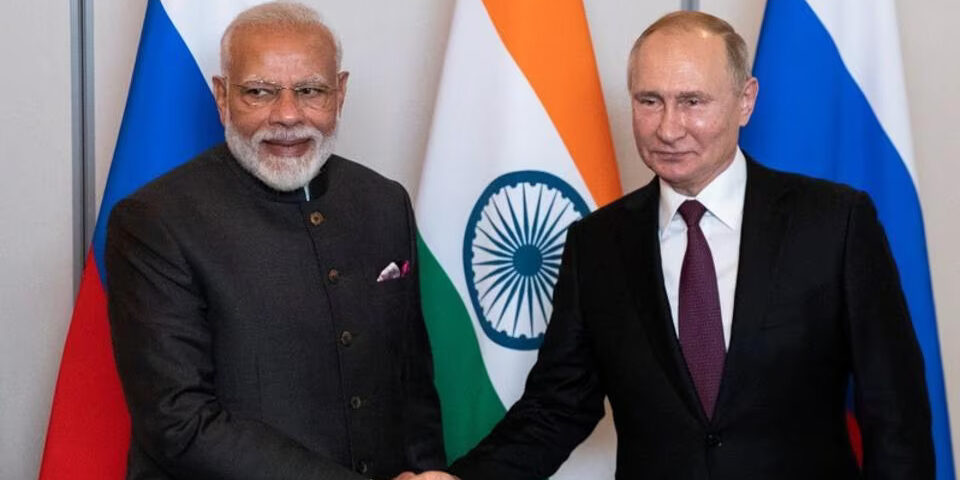Opportunity and Challenges Related to India and Russia Business collaboration/ Cooperation, in the context of the current Geo-political Environment

Fostering Innovation and Collaboration: Idea Exchange Between SCO Countries
06/19/2023
India and Malawi share cordial and friendly bilateral relations
06/22/2023India and Russia share a long-standing history of economic cooperation that has spanned several decades. The bilateral economic relationship between these two nations holds significant potential, but it also faces its fair share of challenges. In this blog, we will delve into the opportunities and challenges associated with the economic ties between India and Russia.
Opportunities:
- Energy Cooperation: Russia possesses vast reserves of oil and natural gas, while India is one of the world’s fastest-growing energy consumers. This creates ample opportunities for energy cooperation, including oil exploration, joint ventures in the energy sector, and long-term energy supply agreements.
- Defense Collaboration: Russia has been a major supplier of defense equipment to India for many years. The two countries have engaged in joint research, development, and production of defense systems. The defense sector offers immense potential for collaboration and technology transfer, fostering indigenous manufacturing capabilities in India.
- Trade and Investment: Both India and Russia have large consumer markets and diverse economies. Expanding bilateral trade and investment can benefit both countries. Opportunities exist in sectors such as pharmaceuticals, IT services, agriculture, and manufacturing. Exploring new avenues for trade and investment can lead to mutual growth and prosperity.
- Infrastructure Development: India’s ambitious infrastructure development plans and Russia’s expertise in sectors like railways, nuclear power, and urban planning create opportunities for collaboration. Joint infrastructure projects, such as ports, railways, and smart cities, can stimulate economic growth and enhance connectivity between the two nations.
Challenges:
- Geographical Distance: India and Russia are geographically distant from each other, which presents logistical challenges and increases transportation costs. Improving transportation links and exploring efficient trade routes can mitigate this challenge.
- Language and Cultural Differences: Language and cultural barriers can create communication and understanding challenges between Indian and Russian businesses. Encouraging cultural exchanges, language training, and fostering cultural awareness can bridge these gaps and enhance business collaborations.
- Regulatory Environment: Differences in regulatory frameworks, taxation policies, and bureaucratic processes can hinder smooth business operations. Efforts should be made to simplify and harmonize regulations, promote transparency, and establish mechanisms for dispute resolution.
- Diversification of Trade: The bilateral trade between India and Russia has been largely skewed towards traditional sectors such as defense and energy. Encouraging diversification by exploring new sectors, promoting small and medium-sized enterprises (SMEs), and fostering innovation can strengthen the economic relationship.
Mr. Tribhuvan Darbari, Mr. Tribhuvan Darbari, Chairman of the Shanghai Cooperation Organisation (SCO) Business Council Secretariat, Managing Director & CEO of Texmaco Defence Systems, and Chief Executive of Texmaco Rail & Engineering Ltd stated that “ India and Russia possess immense potential for economic cooperation, but it is crucial to address the challenges hindering the growth of their economic ties. By leveraging opportunities in energy, defense, trade, investment, and infrastructure, both countries can enhance their economic partnership. Overcoming challenges related to distance, language, regulations, and diversification will require sustained efforts and cooperation. Strengthening economic ties between India and Russia will not only benefit both nations but also contribute to regional and global economic stability and prosperity.”

